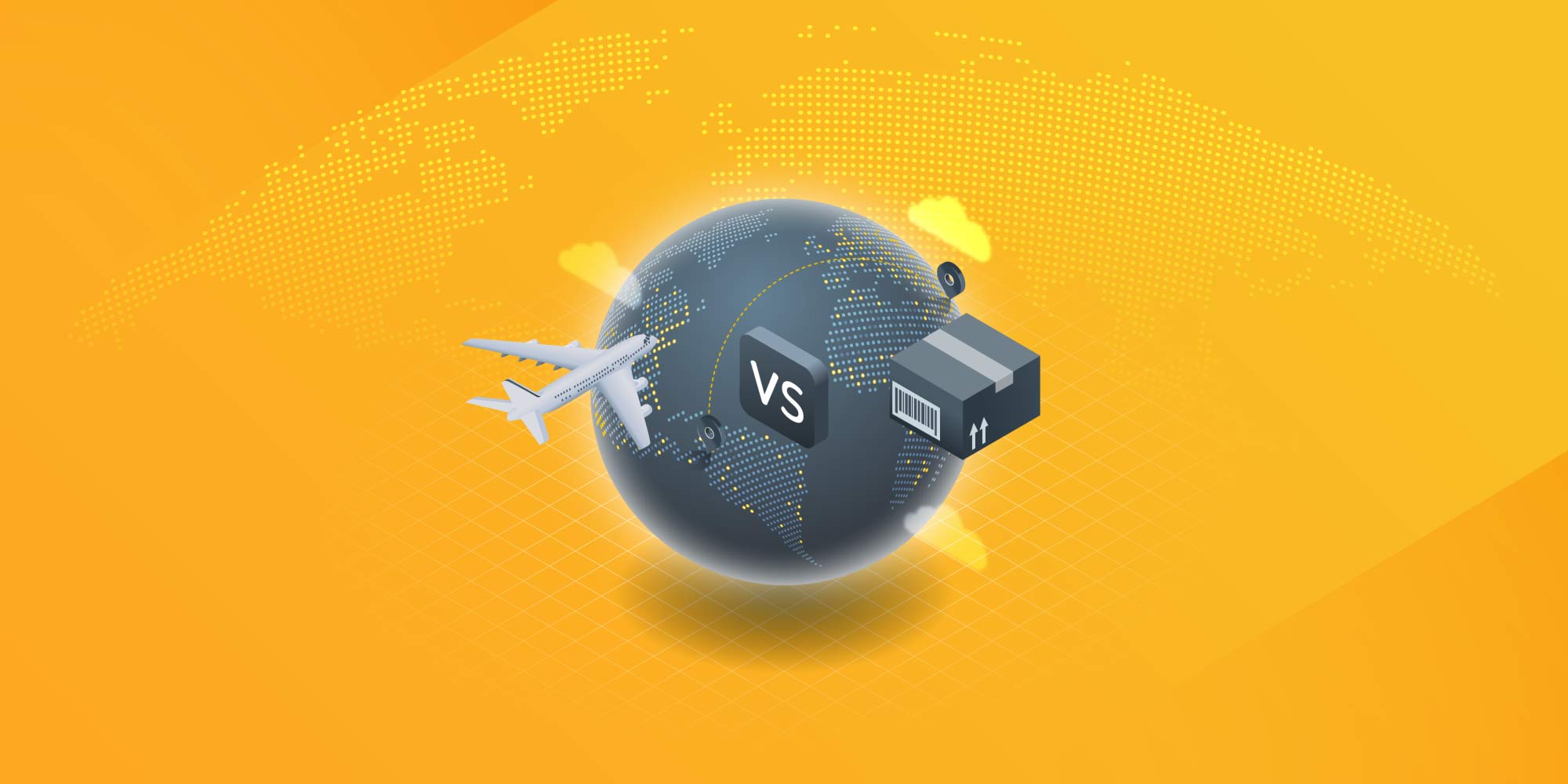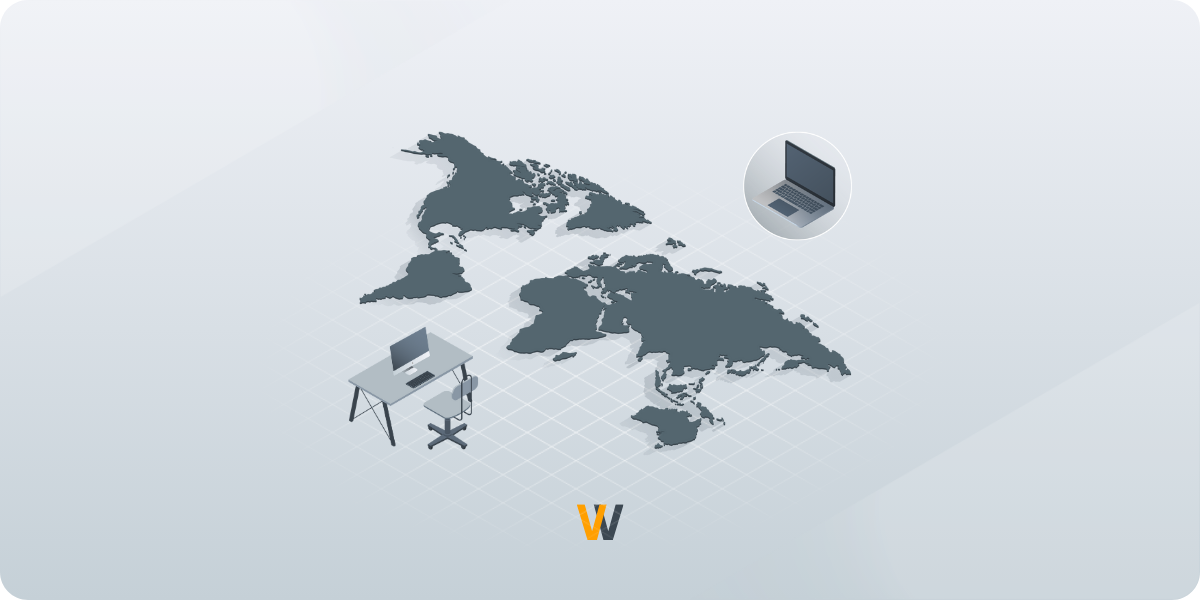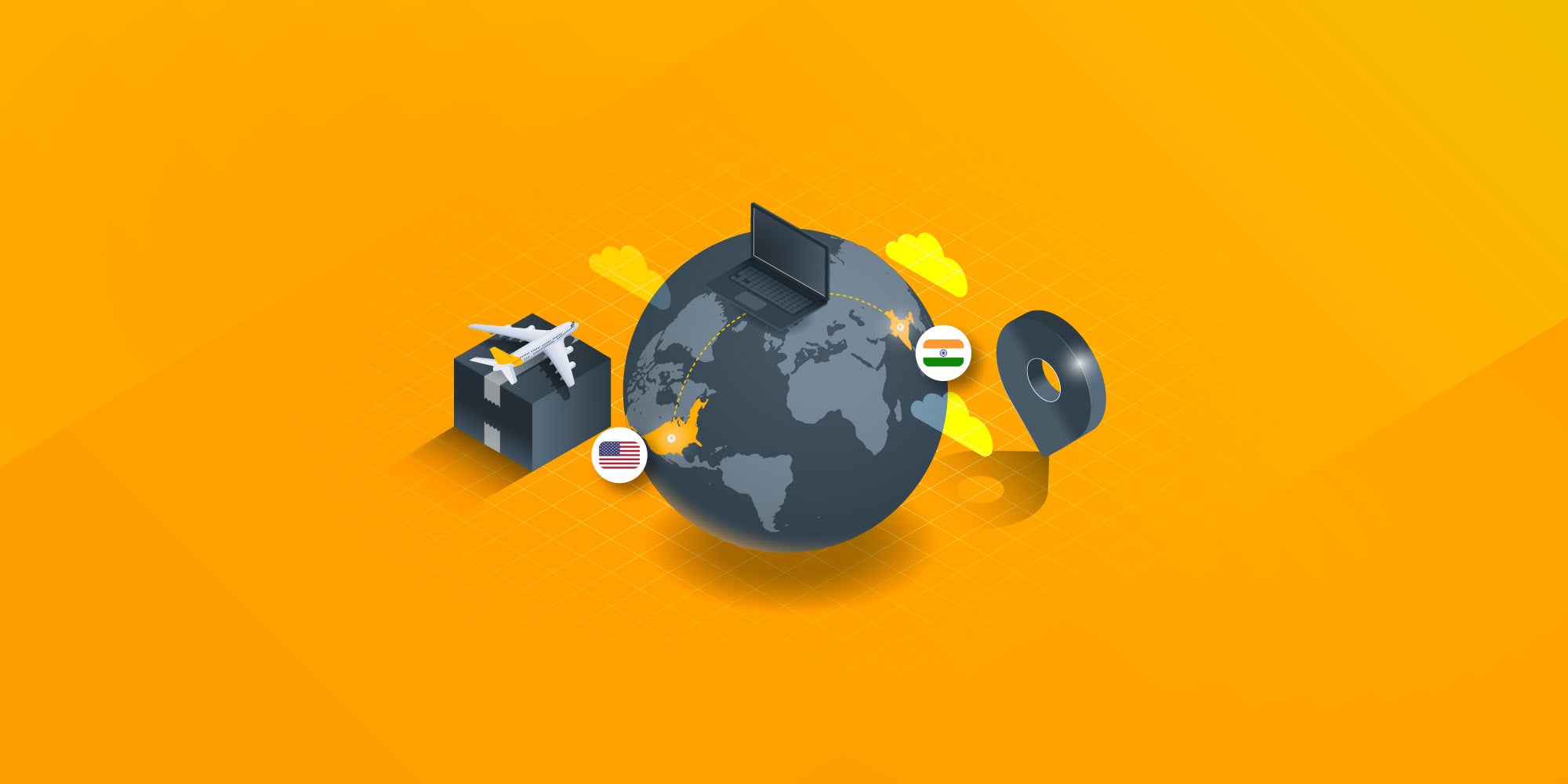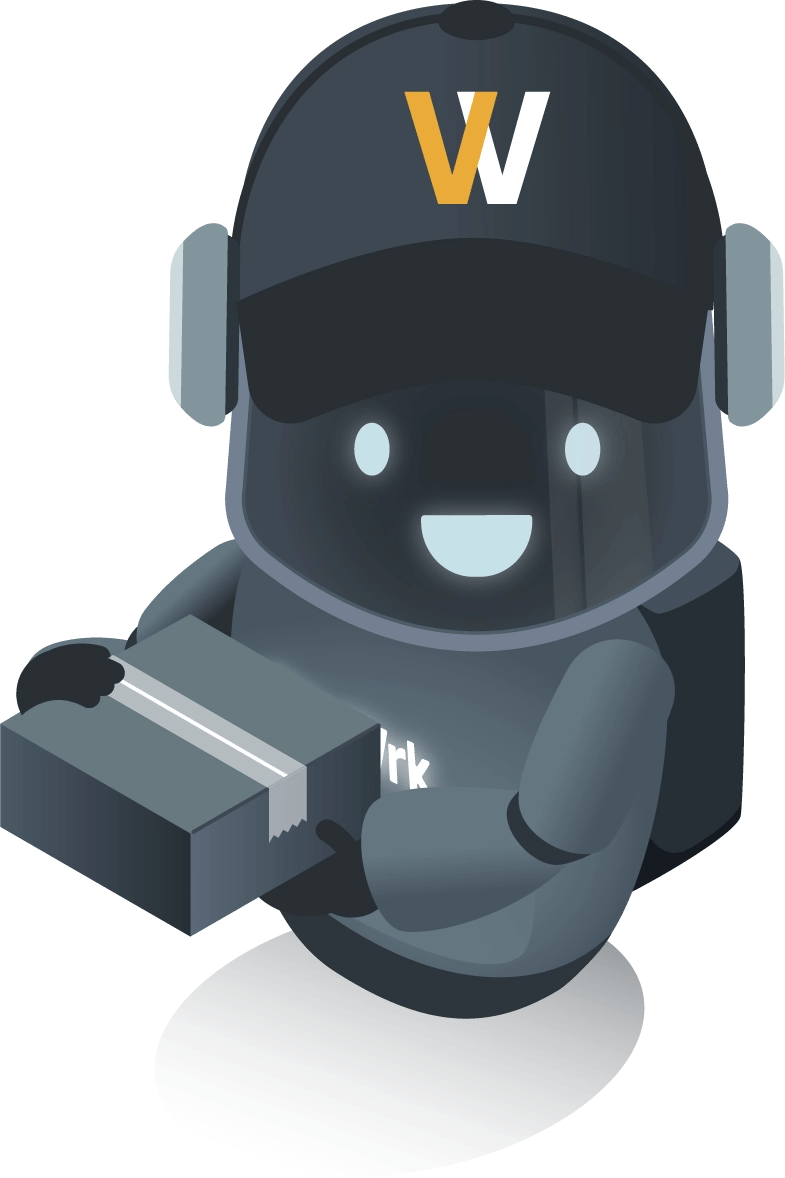Keeping IT real: Driving excellence in global operations with Jason Winnie
 Mara Quintanilla
Mara Quintanilla
Flexibility in work environments is now the norm around the world. Whether fully remote or hybrid, work is more flexible than ever. Keeping up with the necessary IT infrastructure and ensuring equipment runs smoothly wherever employees are is challenging, even for the most seasoned IT experts.
That's why we've created "Keeping IT Real: Stories from real people in Tech," a series of interviews in which we dive into the world of IT asset lifecycle management, bringing you firsthand stories covering every stage of the device lifecycle straight from IT professionals. Let's keep IT real!
Meet Jason Winnie, GroWrk’s logistics expert
Jason Winnie’s journey in logistics began fresh out of high school at UPS, unloading trucks and trailers. This hands-on start ignited his passion for the supply chain—from order inception to delivery. Over the next 15 years, Jason climbed the UPS ranks while pursuing his college education.
Amazon took notice, bringing him on for 11 years of diverse e-commerce logistics roles. At Amazon’s Lab 126, the team behind products like Echo and Kindle, Jason mastered the intricacies of international shipping, particularly for electronic devices and hazardous materials.
Following Amazon, Jason joined Shopify, where he developed partner networks, third-party logistics operations, and transportation strategies to support global e-commerce. Now at GroWrk, Jason’s expertise is simplifying international logistics for businesses of all sizes.
A customer-centric approach to logistics
Jason’s more than 25 years of experience have taught him one universal truth: logistics must always center on the customer.
“It doesn't start pretty. It doesn’t just smoothly flow. There are always going to be challenges in processing, following up, and making sure that you're putting out a true customer-centric vision. It has to be able to be easy, simple, but checking all the boxes for the complexity that you're dealing with,” he explains.
International logistics is incredibly complex. “You make generalizations of ‘Hey, it's just like shipping to Texas’ or ‘It's just like shipping to Canada.’” he notes. “Every single country has a different rule, a different regulation and it really takes true experts to dig deep into those items and understand the country requirements.”
As Jason puts it, there are things that you just don’t know until you do it. “You have to analyze it, and you have to define it, get better, and improve it.” His experience at Amazon, particularly with cross-border shipping of electronic devices, reinforced the importance of understanding these complexities and continuously improving processes.

Key challenges in international logistics operations
There are many considerations when shipping a good from A to B. Simple tasks like accurately detailing device specifications on an invoice can spiral into major hurdles. As a seasoned veteran in this domain, Jason has identified several key obstacles that professionals face:
- Country-specific regulations
- Invoicing requirements
- Hazardous material handling
- Language barriers
- Time zone differences
Here’s a breakdown of what these obstacles can mean for IT professionals dealing with the complexity of shipping devices across international borders.

Country-specific regulations
One of the most unpredictable elements in international logistics is how rapidly regulations can change, driven by shifts in the political landscape. Brands and products may suddenly face hefty tariffs or stringent security checks, as countries impose new rules to protect consumer data or national security interests.
"That's a new and evolving thing politically," Jason remarks. “As the political environment is changing, also the rules are changing within the countries. So there are specific security and privacy rules within countries that do not allow these programs or things that they feel have gaps to release customer data.”
Invoicing requirements
Invoicing is more than just paperwork. It's a crucial step in meeting the detailed entry requirements of different countries. For example, missteps in listing the specific details of electronic devices can lead to shipments being blocked at the border.
Countries have specific requirements for the details that need to be listed, down to electronic device frequencies and power specs. Jason stresses the importance of correctly capturing everything from power specifications to brand names: "Are they putting in the actual details of what is within that computer system or monitor and what frequencies, the power, all of these things."
Hazardous material handling
When shipping hazardous materials, the stakes are high, and the rules are strict. Jason points out how crucial it is to grasp both the regulations set by carriers and those from international bodies like the International Air Transport Association (IATA). A slight misstep in compliance can lead to serious problems, ranging from hefty fines to the possibility of losing the right to ship altogether.
“To be a hazmat shipper [...] you have to have an actual legal agreement with those carriers so that they make it well known that you understand that you are responsible in designating what the product is, based on a harmonized code [...] It also puts the ownership on you knowing the IATA rules, which tell you all of these legally liable things for your company. [...] If you try to do it yourself and you ship hazmat, it's three strikes, and you're out,” Jason explains.
“So if you make three failures, you don't follow the IATA, which says this can't fly with lithium-ion or some other aspect of not legal into the country, those items can then be held for further data and information. They can also be rejected and sent back to you. One strike, two strikes, three strikes, and now you can't ship with that carrier.”
It’s not just about avoiding fines. Mishandling the shipping process can jeopardize your company’s entire shipping capabilities. "You could take out your whole corporation shipping account just by making those mistakes," Jason concludes.
Language barriers
Clear communication is vital in logistics. When you make a shipment, you’re dealing with people from around the world, so language barriers are bound to arise.
“You will encounter holds and different customs issues no matter what,” Jason says. “Part of it is they want to ask questions or get deeper details: ‘You keep shipping these particular items. Tell me more about it.’ ‘Give me invoicing information.’ ‘No, I don't want it in English. I want it in our language.’
Having a diverse, multilingual network addresses these issues, ensuring clarity and precision in all transactions and interactions across borders. It also guarantees that all paperwork is correctly translated, which is necessary to get goods to their final destination.
Time zone differences
Logistics operate globally, so it's essential to understand how to work effectively across different time zones. Jason highlights the benefits of having team members positioned in various locations, ensuring operations can run smoothly around the clock.
“You’ve got to have people in various time zones so that you keep moving. The information, the follow-ups, and the challenges you have with different languages. It's important to operate languages within those countries,” Jason explains.

How GroWrk simplifies the complexity of global logistics
GroWrk tackles these challenges head-on, offering IT managers a seamless solution. “We have a platform that works and physically flows the goods as smoothly as is absolutely possible,” Jason explains. “We make sure that we're doing the best we possibly can for the client. And when things happen, we're working with them, arm in arm, to make sure that those goods get there.”
With GroWrk, companies can rely on experts to manage:
- Local regulations
- Duties and taxes
- Real-time updates
Jason notes that most IT managers lack the knowledge to navigate harmonized codes or VAT requirements. GroWrk can take that burden off their shoulders.
“Having a specialist prepare you or communicate for your business is absolutely critical,” Jason remarks. “And that's tough to put that on an IT manager because their specialty is keeping their operating systems running and that they have their own internal security systems. The end.”
GroWrk ensures that all the information required to enter that country is set and correct. This includes shipper export declarations on high values (SEDs), harmonized codes, Value-Added Tax (VAT), duties paid, and more.
“We make sure that all of the information that is required to enter that country is set and is good. Then the experience is our platform, letting you know: ‘Hey, this is going to be delivered.’ If you need special arrangements, we intervene with scheduling and time with those carriers. All of these things are just taking off the plate of any of these IT managers,” Jason explains.
Regional expertise is also what sets GroWrk apart. “Having folks that are in-region, they understand the rules better, but, quite frankly, they can communicate much better. Dealing with someone here in-country goes a long, long way in making that shipment successful,” Jason remarks. “That's a superpower that you want to leverage.”
From ever-changing regulations to language and time differences, these challenges require serious effort and expertise. However, with the proper knowledge and solutions like GroWrk, any IT team worldwide can easily manage them.
The importance of operational excellence in logistics
For Jason, operational excellence is non-negotiable. It's about "processes, flows, data that allows us full visibility to the challenges we're encountering." He also emphasizes the importance of operational excellence teams, labeling them "absolutely crucial to any success of any organization."
Jason highlights the need for constant improvement with a focus on evaluating and re-evaluating how things are done, from supplier performance to meeting commitments. "If they're not spending time and truly evaluating the processes [...] you won't make significant gains. It's almost the definition of insanity. Keep doing the same thing over and over," he states.
In Jason’s view, data is king. Understanding historical data and trends is paramount to avoiding bottlenecks and forecasting challenges. "If you don't have data, then you need to figure out how to retrieve that data because data informs how you're going to make business moves," he explains.
Operational excellence directly impacts customer satisfaction. Many logistics operations start as reactive businesses focused on putting out fires as they arise. However, as Jason suggests, operational excellence transforms a reactive company into a proactive one. "It starts there: customer experience, working all the way back through the entire process flow," he advises.
“Sometimes departments they look at ‘Oh, we had a little hiccup here, but it's all okay.’ They diffuse the situation, hoping that it doesn't happen again. The reality is that if you have the historical data, you then get to hold accountable each of those folks within the team to make the process flow work. And it's not about coming down on people. It's about making the whole thing smooth and successful.”
“If you don't have operational excellence, you don't have data analysis feeding you with those particular challenges and historical trends. You're not preparing to be proactive. You're a reactive group,” he concludes.
A company might be looking for a partner that provides all the services they need in a single solution. However, it’s tough to find a supplier that can do everything. “They're all patched together,” Jason explains. “Not everybody wants to do end-of-life and reclaim and storage. They're Apple-certified vendors. They're Dell vendors. Putting all of that together is a very complex piece.”
Operational excellence is about accountability within those partnerships. "You have to monitor what those individuals that we have contracted and service to do and work with them to make sure that they have all the tools to do the things that we need and that we work on any challenges or things that don't allow the flow to be smooth,” Jason points out. “That's operational excellence. It's 100% deep into the weeds.”
Ultimately, Jason's aim for operational excellence is client retention. By knowing "exactly what is hurting us," as he puts it, organizations can create projects to smooth, refine, and enhance the business, thereby building lasting partnerships. Operational excellence isn't just a concept—it’s an ongoing, rigorous commitment to the smallest details that optimizes the bigger system.

The future of logistics
Looking ahead, Jason is excited about the potential of artificial intelligence to revolutionize logistics operations and an increasingly globalized workforce.
"Globalization, to me, reflects true talent across the globe." He highlights that companies are moving away from centralized models to embrace a global approach, acknowledging that talent can be found in every corner of the world.
With this global perspective, organizations can surpass traditional limitations, tapping into diverse skills and perspectives. "There's talent challenges. There are labor and cost enhancements to working across the globe. There are really well-educated professionals in almost every region, and that brings diversity," Jason notes.
“Culturally, you look at things differently, you operate differently. When you bring those things together in an organization you're raising the bar every single time," Jason observes. He adds that companies want to cover all regions and provide the highest level of service and the quickest responses. To do so, they require what he calls a “follow the sun” model that incorporates talent from across the globe to keep up with that seamless service.
Jason is particularly excited about AI's opportunities. He envisions AI systems that can make knowledge-based decisions, execute tasks at a higher level, and provide valuable data for continuous improvement. "AI works 24/7, has high computing capabilities, and is able to cover so many different areas," Jason says. “We can integrate those knowledge-based systems to execute at a higher level. What do you get with those things? Data! I get data on how many times it's happened, pareto that, make improvements, and figure out where are our bottlenecks."
Wrapping up
The need for global operations drives the ultimate demand for a solution like GroWrk. “You need somebody who's got to be able to facilitate and take some of the physical challenges off of your plate. A lot of them are follow-up-type challenges of ‘I got this issue; they want an invoice.’ It's not a gigantic thing, but it’s on hold. Each time it's on hold, it's costing you money. They might even seize the product if you don't give the right answers and in the right way,” Jason states.
As businesses expand globally and workforces become increasingly distributed, the demand for sophisticated logistics solutions will only grow. With his wealth of experience and forward-thinking approach, Jason Winnie is leading GroWrk in meeting these challenges and shaping the future of international logistics.
If you're looking for a partner that can deliver equipment to your team across the globe, check out GroWrk. Book a demo today to learn how we simplify global logistics in just a few clicks.






